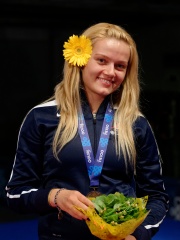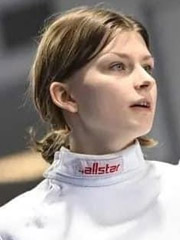
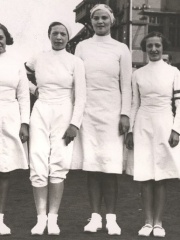
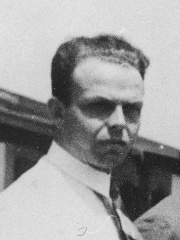
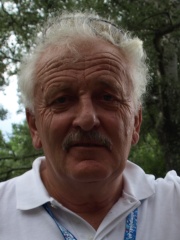
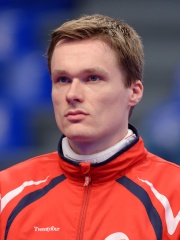
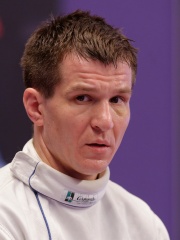
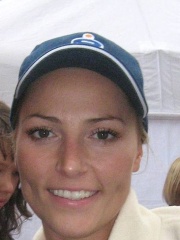

The Most Famous
FENCERS from Poland
Top 10
The following people are considered by Pantheon to be the top 10 most legendary Polish Fencers of all time. This list of famous Polish Fencers is sorted by HPI (Historical Popularity Index), a metric that aggregates information on a biography's online popularity. Visit the rankings page to view the entire list of Polish Fencers.

1. Egon Franke (1935 - 2022)
With an HPI of 57.41, Egon Franke is the most famous Polish Fencer. His biography has been translated into 21 different languages on wikipedia.
Egon Johann Franke (23 October 1935 – 30 March 2022) was a Polish fencer and Olympic champion in foil competition. He won a gold medal in the individual foil at the 1964 Summer Olympics in Tokyo. He also received a team silver medal in 1964 and a bronze medal in 1968.

2. Erna Bogen-Bogáti (1906 - 2002)
With an HPI of 55.21, Erna Bogen-Bogáti is the 2nd most famous Polish Fencer. Her biography has been translated into 17 different languages.
Erna Bogen-Bogáti (31 December 1906 – 23 November 2002) was a Hungarian fencer. She won a bronze medal in the women's individual foil event at the 1932 Summer Olympics. She was the daughter of Hungarian Albert Bogen, who competed for Austria at the 1912 Summer Olympics (winning a silver medal in team sabre) and for Hungary at the 1928 Summer Olympics. She was the wife of the Hungarian fencer Aladár Gerevich and mother of Olympic medalist Pál Gerevich.

3. Tadeusz Friedrich (1903 - 1976)
With an HPI of 53.70, Tadeusz Friedrich is the 3rd most famous Polish Fencer. His biography has been translated into 16 different languages.
Tadeusz Friedrich (7 July 1903 – 10 October 1976) was a Polish fencer. He won a bronze medal in the team sabre event at the 1928 and 1932 Summer Olympics. Friedrich fought in the Warsaw Uprising in 1944. After the war he stayed in Kraków, where he worked as a sport coach. His wife was Felicja Schabińska, Polish athlete and Olympian.

4. Lech Koziejowski (b. 1949)
With an HPI of 49.49, Lech Koziejowski is the 4th most famous Polish Fencer. His biography has been translated into 16 different languages.
Lech Koziejowski (born 3 April 1949) is a Polish fencer. He won a gold medal in the team foil event at the 1972 Summer Olympics and a bronze in the same event at the 1980 Summer Olympics.

5. Tomasz Motyka (b. 1981)
With an HPI of 40.92, Tomasz Motyka is the 5th most famous Polish Fencer. His biography has been translated into 17 different languages.
Tomasz Marek Motyka (born 8 May 1981 in Wrocław) is a Polish épée fencer. European champion in 2005, he won a silver medal in Men's Team Épée at the 2008 Summer Olympics in Beijing, together with Adam Wiercioch, Radosław Zawrotniak, and Robert Andrzejuk. For his sport achievements, he received the Golden Cross of Merit in 2008.

6. Bartosz Piasecki (b. 1986)
With an HPI of 39.50, Bartosz Piasecki is the 6th most famous Polish Fencer. His biography has been translated into 18 different languages.
Bartosz Piasecki (Norwegian pronunciation: [ˈbartɔʂ pjaˈsɛt͡skʲi]; born 9 December 1986) is a Norwegian fencer.

7. Radosław Zawrotniak (b. 1981)
With an HPI of 38.68, Radosław Zawrotniak is the 7th most famous Polish Fencer. Her biography has been translated into 17 different languages.
Radosław Aleksander Zawrotniak (born 2 September 1981 in Kraków, Małopolskie) is a Polish fencer who won a silver medal in Men's Team Épée (Fencing) at the 2008 Summer Olympics in Beijing, together with Tomasz Motyka, Adam Wiercioch, and Robert Andrzejuk. For his sport achievements, he received: Golden Cross of Merit in 2008.

8. Sylwia Gruchała (b. 1981)
With an HPI of 38.00, Sylwia Gruchała is the 8th most famous Polish Fencer. Her biography has been translated into 19 different languages.
Sylwia Gruchała (born 6 November 1981 in Gdynia, Pomorskie) is a Polish fencer.

9. Renata Knapik-Miazga (b. 1988)
With an HPI of 35.83, Renata Knapik-Miazga is the 9th most famous Polish Fencer. Her biography has been translated into 16 different languages.
Renata Knapik-Miazga (née Knapik; born 15 July 1988) is a Polish épée fencer. She participated in the 2020 and the 2024 Summer Olympics, winning the bronze medal in the épée team competition at the latter.
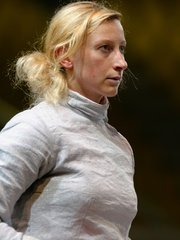
10. Aleksandra Shelton (b. 1982)
With an HPI of 34.89, Aleksandra Shelton is the 10th most famous Polish Fencer. Her biography has been translated into 14 different languages.
Aleksandra Anna Socha Shelton (born 30 March 1982) is a Polish sabre fencer, bronze medal in the 2003 World Fencing Championships, European champion in 2004, and European team in 2008. She represented Poland at the time.
People
Pantheon has 15 people classified as Polish fencers born between 1903 and 2004. Of these 15, 12 (80.00%) of them are still alive today. The most famous living Polish fencers include Lech Koziejowski, Tomasz Motyka, and Bartosz Piasecki. The most famous deceased Polish fencers include Egon Franke, Erna Bogen-Bogáti, and Tadeusz Friedrich. As of April 2024, 4 new Polish fencers have been added to Pantheon including Aleksandra Shelton, Ewa Trzebińska, and Martyna Swatowska-Wenglarczyk.
Living Polish Fencers
Go to all RankingsLech Koziejowski
1949 - Present
HPI: 49.49
Tomasz Motyka
1981 - Present
HPI: 40.92
Bartosz Piasecki
1986 - Present
HPI: 39.50
Radosław Zawrotniak
1981 - Present
HPI: 38.68
Sylwia Gruchała
1981 - Present
HPI: 38.00
Renata Knapik-Miazga
1988 - Present
HPI: 35.83
Aleksandra Shelton
1982 - Present
HPI: 34.89
Ewa Trzebińska
1989 - Present
HPI: 34.21
Martyna Swatowska-Wenglarczyk
1994 - Present
HPI: 32.76
Dagmara Wozniak
1988 - Present
HPI: 31.68
Alicja Klasik
2004 - Present
HPI: 26.51
Martyna Jelińska
1992 - Present
HPI: 22.85
Deceased Polish Fencers
Go to all RankingsEgon Franke
1935 - 2022
HPI: 57.41
Erna Bogen-Bogáti
1906 - 2002
HPI: 55.21
Tadeusz Friedrich
1903 - 1976
HPI: 53.70
Newly Added Polish Fencers (2025)
Go to all RankingsAleksandra Shelton
1982 - Present
HPI: 34.89
Ewa Trzebińska
1989 - Present
HPI: 34.21
Martyna Swatowska-Wenglarczyk
1994 - Present
HPI: 32.76
Alicja Klasik
2004 - Present
HPI: 26.51
Overlapping Lives
Which Fencers were alive at the same time? This visualization shows the lifespans of the 3 most globally memorable Fencers since 1700.



